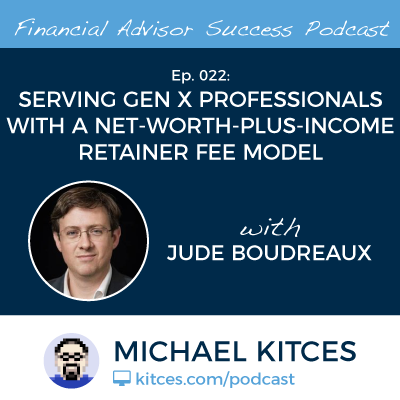Monte Carlo analysis is a superior retirement planning approach to the standard "straight-line" retirement projection, because it implicitly considers not only average returns, but a range of potentially volatile returns, allowing the prospective retiree to understand how the retirement plan might fare in various scenarios. However, with the additional capability to illustrate a range of volatile returns - potentially across multiple investments or asset classes - comes a greater burden to craft appropriate investments assumptions for the Monte Carlo analysis. Otherwise, there's a risk that the Monte Carlo analysis could mis-state the risks of various retirement portfolios.
In this week’s #OfficeHours with @MichaelKitces, my Tuesday 1PM EST broadcast via Periscope, we discuss how Monte Carlo investment assumptions impact retirement planning projections, and particularly how important it is to include an appropriate correlation matrix when including multiple investments or asset classes in a Monte Carlo projections. As failing to include a proper correlation matrix will generally lead to a retirement projection that understates risk and overstates the probability of success!
The key issue is that when selecting investment assumptions for a Monte Carlo analysis, there are three core points of data that are necessary for each investment: expected return, volatility, and correlation. And correlations are much more challenging assumptions, because it's necessarily to make an assumption for the relationship between each investment and every single other investment paired to it! And a rising number of investments necessitates dramatically more correlation pairs - as a result, 3 investments requires 3 correlations, but 5 investments requires 10 correlations, and 10 investments requires assumptions for a whopping 45 correlation relationships!
And the reality is, given the underlying math of a Monte Carlo analysis, even making no correlation assumption is an assumption. It's just an implicit assumption of zero correlation... which is actually a very dangerous assumption, because, in the real world most investments don't have zero correlation. Yet by assuming zero correlation when the correlation is actually higher, the projection ends out overstating the benefits of diversification, and therefore understating the risk to the retiree and overstating their probability of success in retirement!
In the end, this doesn't mean it's bad to have a diversified portfolio, but it's crucial to recognize that adding more investments to a Monte Carlo analysis doesn't necessarily make it more "accurate", and in fact will decrease the accuracy of the projection unless the entire correlation matrix is properly included (with appropriate assumptions). As a result, a better practical approach for many advisors may be to utilize simpler two-asset-class portfolios of stocks and bonds for Monte Carlo purposes... as while this may slightly understate the benefits of having a fully diversified portfolio, at least it won't overstate the benefits, and it is far easier to help a client adjust to a retirement that is going better than expected, than to adapt to one that is going worse!






 Welcome back to the twenty-second episode of the Financial Advisor Success podcast.
Welcome back to the twenty-second episode of the Financial Advisor Success podcast.



